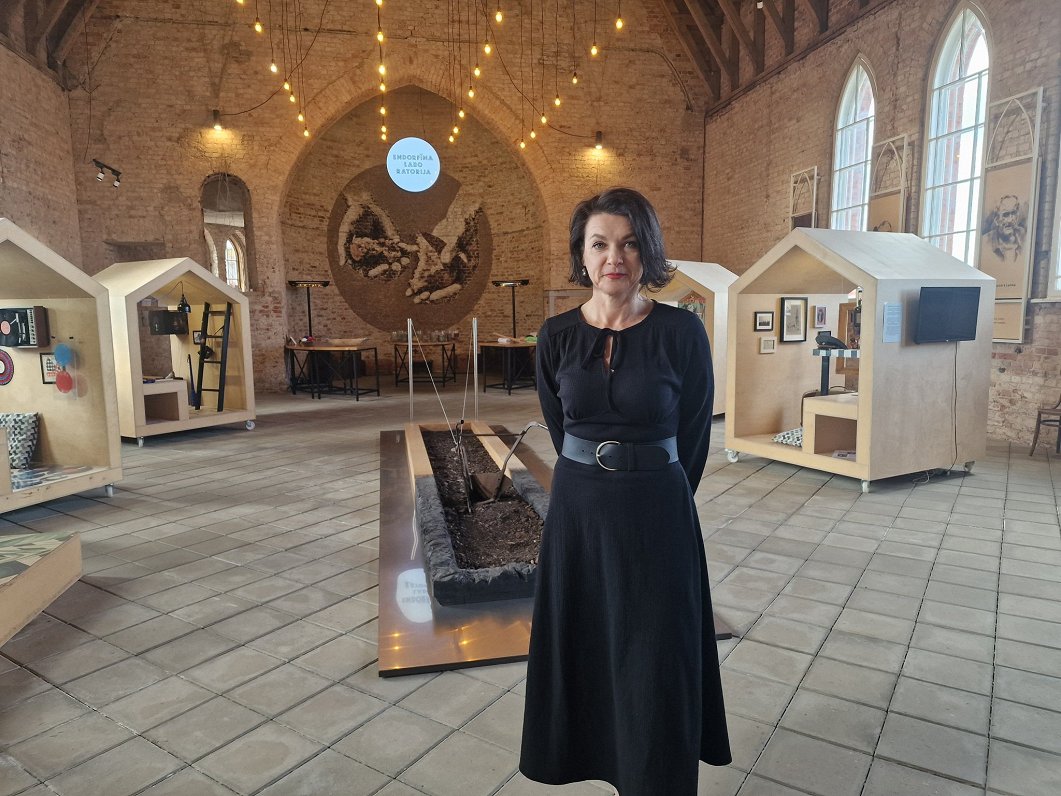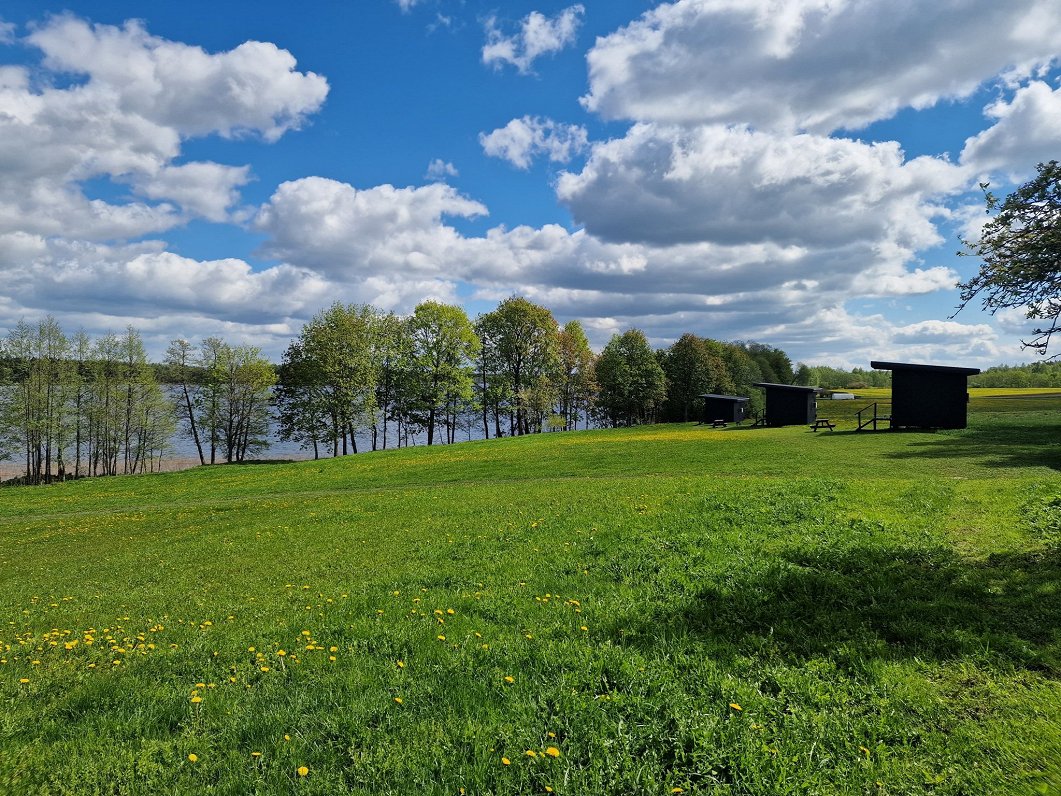A recreation complex with several camping cabins was set up five years ago near the island-rich Ežezers lake in the Krāslava region. Dainis Vaivods, the administrator of the recreation area, says that it is mostly local Latvian tourists who find a place to relax here.
"Foreigners also come here, not many, maybe we don't do enough advertising, but mostly from Kurzeme, the middle of Latvia."
The tourist influx was more pronounced during the pandemic. "Last year was optimal, very good, this year at least looks a little less so far, but it is only the beginning of May. People are getting a bit lazy, maybe they are choosing to go to warmer countries."
He does not comment on whether the proximity of the border and geopolitical conditions are currently influencing tourism flows. "We are probably 35 km from the Belarusian border, we are not in that zone, but now we have intensive checks - police checks, border guards, servicemen, so you have to have your documents with you all the time anyway. When you come here, there might be something suspicious about meeting the police at every crossroads, but now we're used to it."
A place called "Indra" offers tourists a peculiar island of happiness in the very border area just a few kilometers from the Latvian-Belarusian border and the newly-built border fence in the Krāslava district. For the sixth season, families and friends, work teams, schoolchildren and pensioners' associations from all over Latvia are welcomed here in a building that was once a Lutheran church, where they can try out happiness simulators, including dish-smashing. Covid-19 was also the most productive year here, with as many as 4,000 visitors per season.
"Unfortunately, the war in Ukraine is also having a bit of an impact, as there are fewer and fewer tourists from Europe," says Ilona Kangīzere, manager of the Happiness Museum in Indra. She is a local, but when friends from Riga or other countries come to visit her, she is happy to bring them to the Happiness Museum and other tourist sites in the border area.
"Of course I have to tell them beforehand that they have to bring their documents, because it is a border area and always has been, you have to have your documents with you, and then it is always a reason to talk a bit more about how we feel here in the border area. And what I try to convey to my friends who come to see me is that we are Latvia, we are part of NATO, the EU and just because we are physically a few kilometers from the border, it does not mean that we are unsafe."

Organized bus trips to Latgale have not stopped, and the offer is still wide and varied, but the increased border security has had an impact on the accessibility of some sites.
"There are some places where we are unfortunately no longer present. We used to have a very beautiful natural attraction, Mount Greblis. It is right on the Russian border, so it is clear that we don't go there anymore. There are places that you have to take into account and understand, but in general people still want to see and get to know Latgale," says Uldis Klepers, a representative of the travel agency "Impro".
He also says that there are places where tourist groups have to apply for special border zone residence permits, which are obligatory when entering a territory closer than two kilometers to the border.
"We also have, for example, groups staying overnight in the border area itself, where special permits are required. As for the fears of proximity to the border – the biggest fear is, of course, felt by foreigners. Germans, Canadians, Greeks, anyone coming from Western Europe. They then look with a certain awe not only at Latgale, but also at Latvia as a whole."
Laura Spundere, Tourism Specialist of Latgale Tourism Association, said there are various information bubbles:
"Being here in Latgale, working locally and living here, there is no feeling at all that you feel threatened, that you have to worry, that you have to be prepared for something."
Spundere says that fear is still understandable if it is expressed by foreigners, but it is not understandable if it is also expressed by local Latvian travelers.
"Is there some kind of information barrier that they don't get this information about the situation, or is there some kind of rumor spreading in society, and so maybe some kind of stereotypical ideas come up."
"I thought it would be fine in the summer, but in the autumn and spring half of the year it seems that it is not going so well," Aivars Mackevičs, director of BalticTravelnews.com, outlines the trends in the tourism sector and emphasizes that people are afraid of the Russian border in the context of Latvia: "Friends come from Germany and I say let's go to Latgale and they shake their heads no-no."
Asnāte Ziemele, President of the Latvian Rural Tourism Association "Lauku ceļotājs", also points out the challenges for border tourism entrepreneurs.
It is more problematic for areas bordering an aggressor state to attract foreign tourists.
"We just spoke to two hikers who are doing the forest trail from Kaunas to Riga, and they said that where the forest trail goes along the Estonian-Russian border, they wouldn't go there, they think it's very unsafe and someone is actually fighting there."
The tourism industry is particularly sensitive to rumors and stereotypes, but one of the ways to reduce border fears and insecurity is through effective communication, continues Asnāte Ziemele.
"I think in this case, Latgalians themselves and, of course, in the common state policy, we need to say that nobody is fighting anywhere in Latvia, that everything is safe."
































